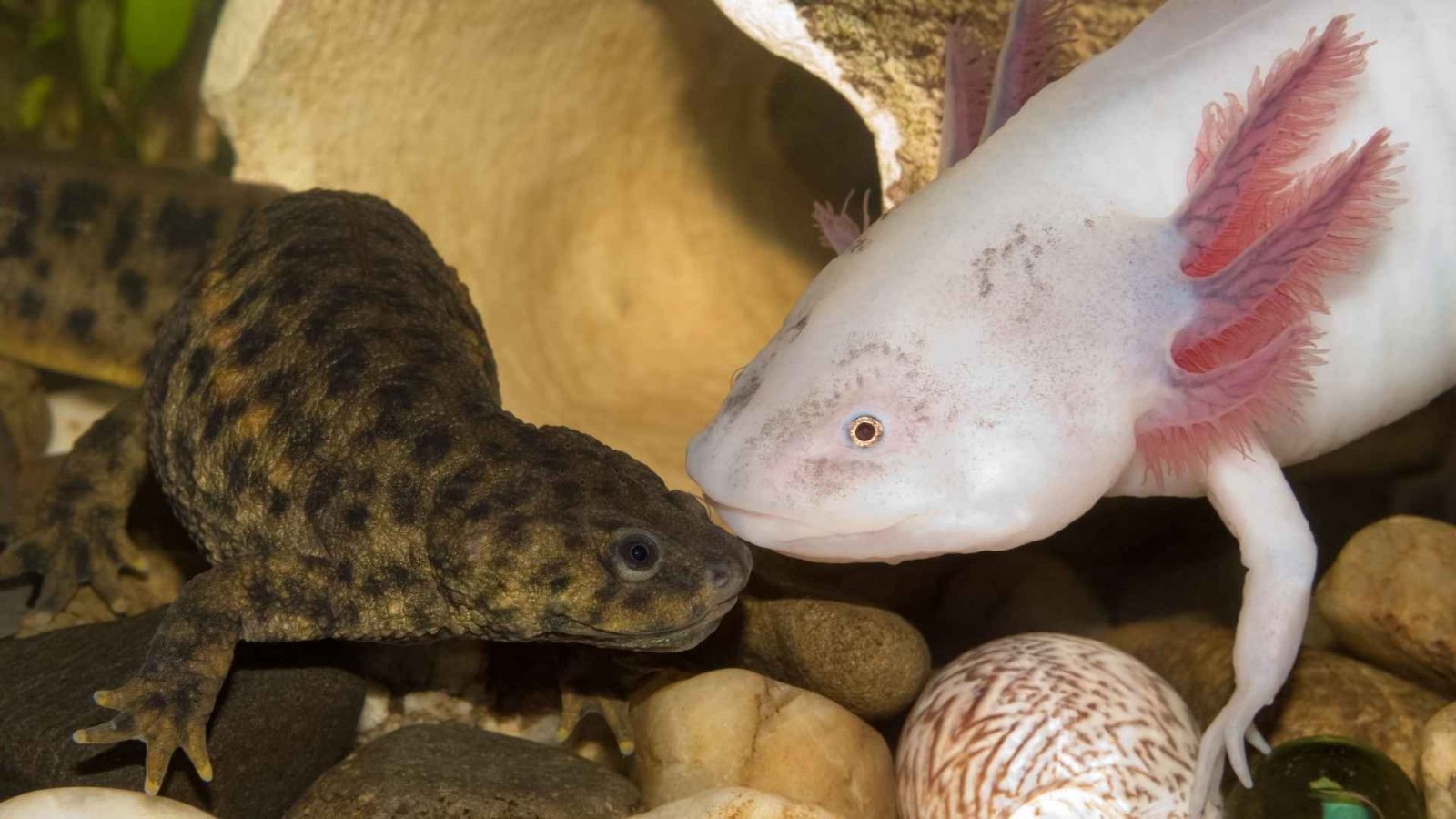
Contents
Are Axolotls Blind – Introduction

Axolotls are one of the most popular pets. They’re so popular that they were even featured on the cover of National Geographic magazine! But did you know that axolotls are blind?
If you’ve ever seen a video or photo of an axolotl in captivity, it might look like they can see just fine. But according to biologist James Orr, who studies these fascinating creatures at the University of Guelph in Canada, this is not true–at least not when it comes to humans and other animals.
Most axolotls are blind, but they can see in dim light.
The Insane Biology of: The Axolotl: https://m.youtube.com/watch?v=bFkIG9S2Mmg
Axolotls are blind.
But they can see in dim light, bright light and darkness. They cannot see when it’s pitch black or in complete darkness.
Blindness doesn’t affect their other senses.
They can still hear, taste and smell, sense heat and cold, vibrations, light and dark. They can also sense pressure on the body or an object inside itself.
However, they do have a problem with pain perception. If you pinch them in the tail or suck their skin at specific points between their scales (where they have no nerve endings), they will feel as if they were cut off from their body!
They can feel their environment well enough to know whether they’re hot or cold.
Axolotls can sense the difference between hot and cold, warm and cool. They do this by sensing vibrations in the water, which are caused by changes in temperature. For example, put your hand under a running faucet while on full blast. You’ll notice that its water feels much warmer than usual because there is more friction between your hand and the pipes as they vibrate against each other (known as thermal conductivity).
On the other hand, if someone places their hand under cool water flowing from a faucet that does not have any pressure behind it—like someone who lives near lakes or ponds—the person’s hands will feel freezing!
Axolotls can use their sense of smell to find food.
Axolotls have a perfect sense of smell and can detect prey from far away, even if it’s not moving around much. When an axolotl finds prey, it will swim toward it to eat it. If many different types of food are available at once (like when there are algae and small fish), the axolotl may choose one or two at a time and leave them behind while swimming towards another type.
This is because their vision could be better – they need to see well enough without having something directly in front of them (like mud). However, this doesn’t mean that they won’t also pick up on anything else that might be nearby. If you have some flowers growing near your tank with lots of pollen floating around outside, chances are high that one day soon, those flowers will produce seeds that could fall right into your tank!
They’re good swimmers and have been known to live more than five years in captivity.
Axolotls can swim well.
They’re not as social as other amphibians, but they make up for it by being more tolerant of human contact than most other amphibians. Axolotls are not good at climbing or jumping; they prefer to shuffle along on their bellies. When walking around the tank, axolotls will often lift their tail off the ground and drag it behind them like an elephant’s trunk (a behavior called “walking”).
They may be able to tell when humans are touching them.
If you’re holding an axolotl in your hand, it will recoil and try to escape. They’ll also try to hide under rocks or in other dark places if they feel threatened.
Axolotls can sense heat and cold just like humans do through touch sensors on their bodies—specifically on their backs! This information allows them to adjust their behavior depending on what kind of environment they’re in at any given time (e.g., whether it’s hot or cold), which could explain why axolotls are so sensitive when it comes down to what kind of temperature feels good for them (or not).
It’s not clear how blindness affects their behavior or health.
The blindness of axolotls is not known to affect their other senses. They can feel their environment well enough to know whether they’re hot or cold, but there has been no research on how this affects their behavior.
It’s also possible that the blind axolotls may have an increased sense of smell, which could help them find food and avoid predators (such as humans).
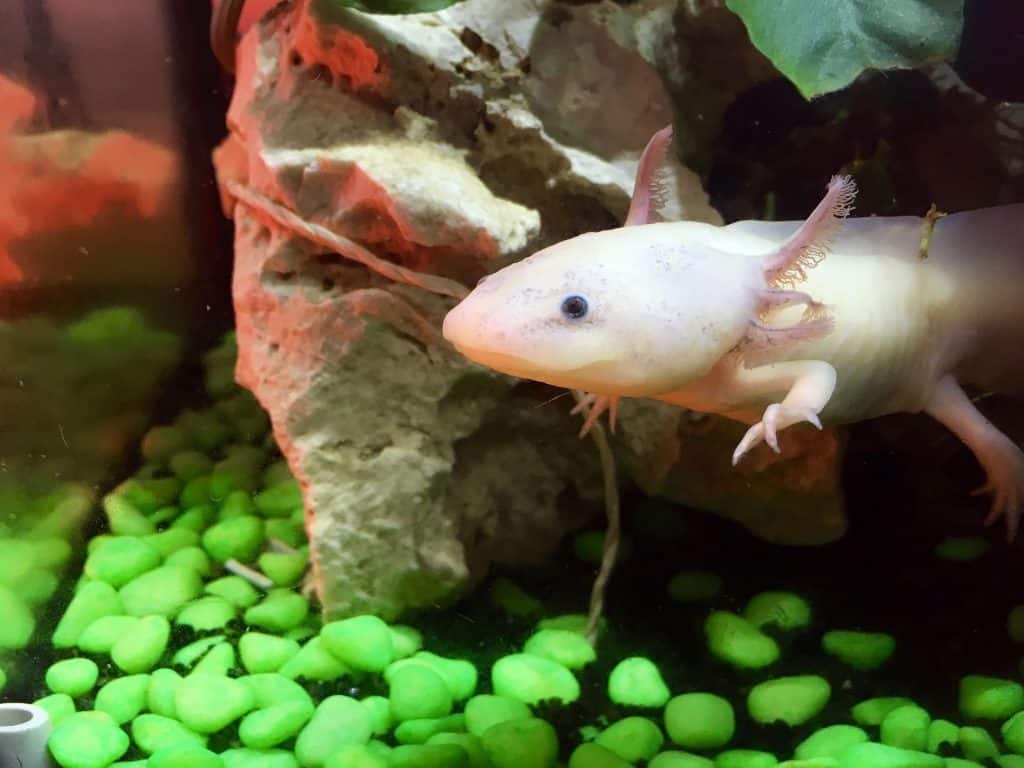
Conclusion
It’s not clear how blindness affects their behavior or health. The lack of light in an axolotl’s environment reduces their stress levels and makes them less likely to feel threatened by predators. However, this may not be true for all species because some animals have evolved ways around this problem.
More Links:
Axolotl Fungus: https://adoptanim.com/axolotl-fungus/
Can Axolotls Breathe Out of Water? – Unbelievable Facts in 2023!: https://adoptanim.com/can-axolotls-breathe-out-of-water/

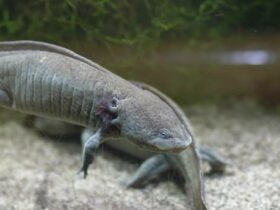
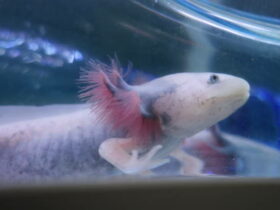
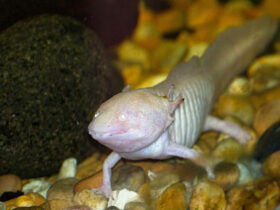

Leave a Reply